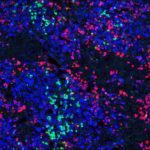Link to Pubmed [PMID] – 21993621
Nature 2011 Oct;478(7369):391-4
Human induced pluripotent stem cells (iPSCs) represent a unique opportunity for regenerative medicine because they offer the prospect of generating unlimited quantities of cells for autologous transplantation, with potential application in treatments for a broad range of disorders. However, the use of human iPSCs in the context of genetically inherited human disease will require the correction of disease-causing mutations in a manner that is fully compatible with clinical applications. The methods currently available, such as homologous recombination, lack the necessary efficiency and also leave residual sequences in the targeted genome. Therefore, the development of new approaches to edit the mammalian genome is a prerequisite to delivering the clinical promise of human iPSCs. Here we show that a combination of zinc finger nucleases (ZFNs) and piggyBac technology in human iPSCs can achieve biallelic correction of a point mutation (Glu342Lys) in the α(1)-antitrypsin (A1AT, also known as SERPINA1) gene that is responsible for α(1)-antitrypsin deficiency. Genetic correction of human iPSCs restored the structure and function of A1AT in subsequently derived liver cells in vitro and in vivo. This approach is significantly more efficient than any other gene-targeting technology that is currently available and crucially prevents contamination of the host genome with residual non-human sequences. Our results provide the first proof of principle, to our knowledge, for the potential of combining human iPSCs with genetic correction to generate clinically relevant cells for autologous cell-based therapies.

